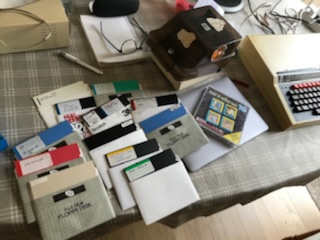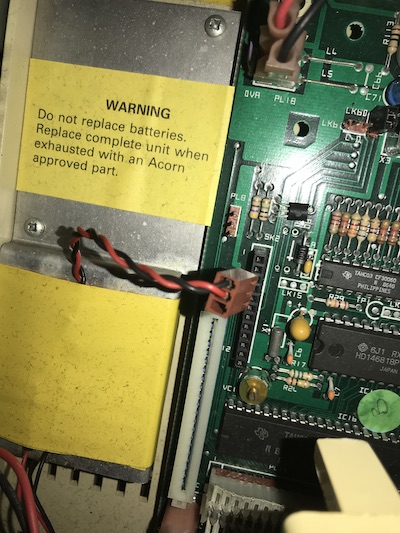Loft mining
The loft has been raided; one BBC Master 128k, one Opus Challenger 3in1 and a bundle of 5.25” discs and (gasp) cassettes.

A veritable treasure trove of memorabilia! Now, I knew that an old system could be unreliable, and I had a (very) hazy memory of the BBC Master having issued with its battery (for stored settings and its clock), so I took the precaution of popping the case - no mouse nests, good - and unplugged the battery case.

Alas, this wasn’t enough . . . I plugged it in, fired it up - so far, so good! “durrr-doop” went the beeb, happy days. So, power off, ferret around for ye olde UHF lead, and a matching TV. I’d kept a Samsung LCD TV that I’d used as a monitor for just this purpose (it has S-video, SCART, composite, VGA, DVI and UHF analogue - a swiss army knife of its day). “durrr-doop” - retune the TV, I was in! Slighty fuzzy, but there was the beeb. Slightly confused due to losing its configuration, but I was off.
I eyeballed a few floppies - checking for mould etc - one looked clean, so gave it a pop. Ye gods it worked - 30+ years and still held data, Opus DDOS was happy.
But.
“Crack! Fzzzz-pop” and a puff a magic smoke. Beeb still running, but . . . not wise to leave it on! Rapidly switched off and took it outside - that smoke really smells bad . . .
One search later. Ah. Extra things that can fail . . . such as electrolytic capacitors used in the PSU . . . now, I can cope with a little bit of soldering, but the innards of a mains PSU didn’t sound advisable. You can get replacement capacitors easily (such as eBay) - but that runs the risk of other hidden issues and the less hidden issue of my electronics knowledge.
So - one email to RetroClinic later…
